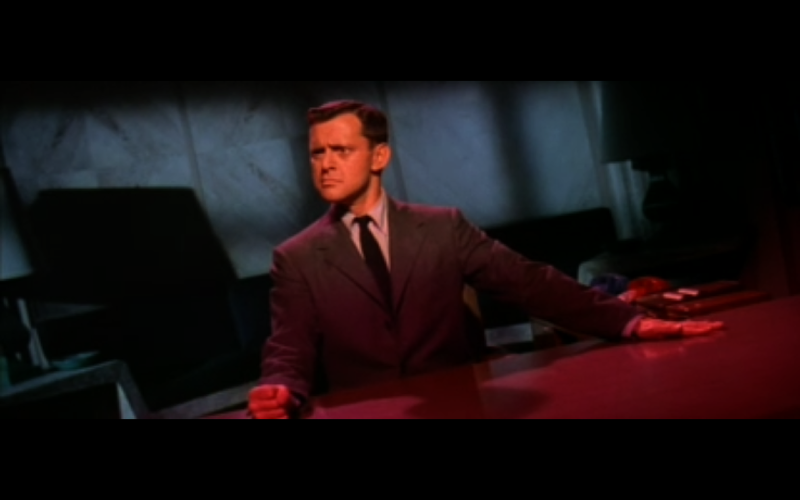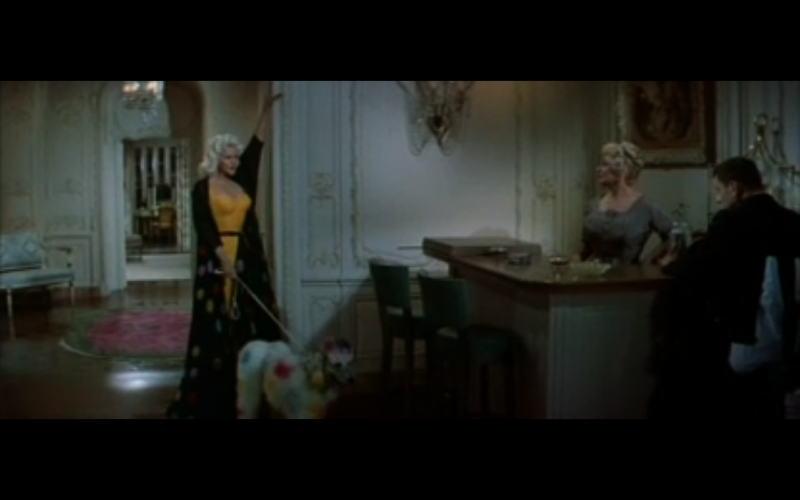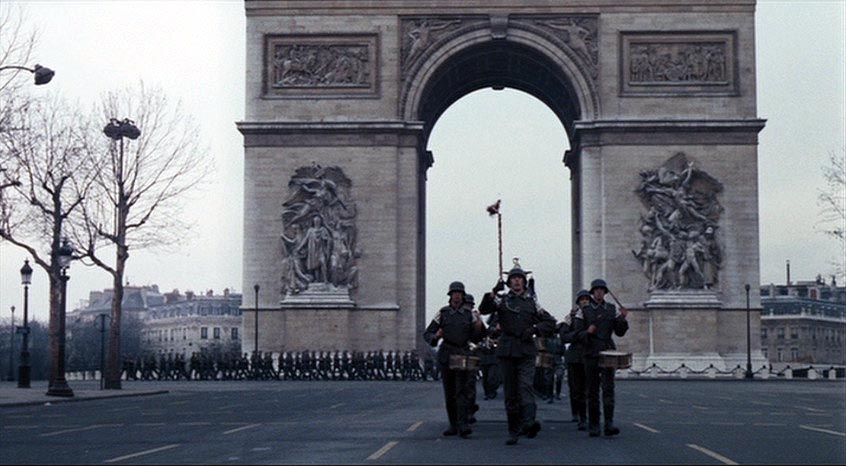From the July 21, 2006 Chicago Reader. — J.R.


The Case of the Grinning Cat
*** (A must see)
Directed and written by Chris Marker
Narrated by Gerard Rinaldi
Will Success Spoil Rock Hunter?
**** (Masterpiece)
Directed and written by Frank Tashlin
With Tony Randall, Jayne Mansfield, Betsy Drake, Joan Blondell, John Williams, Henry Jones, and Mickey Hargitay


Two cheery, even hilarious works that are informed by a surrealist spirit are showing this week at the Gene Siskel Film Center. Each says plenty about what’s wrong with the world, yet neither has a villain.


The Case of the Grinning Cat is a wise, somewhat whimsical hour-long video — a political commentary on Western culture by independent French writer-director Chris Marker, who turns 85 next week. From 2001 to 2004 he taped ephemeral phenomena on the streets of Paris — graffiti, posters, political demonstrations, glimpses of cats and musicians in metro stations — as he explored issues ranging from 9/11 and the invasion of Iraq to more local concerns. It’s all framed by a reverie about cartoon Cheshire cats that mysteriously appear in unexpected places, rather like the proliferating post horns in Thomas Pynchon’s The Crying of Lot 49.


Will Success Spoil Rock Hunter? Read more
This is the third of my bimonthly columns for Cahiers du Cinéma España; it ran in their October 2007 issue. — J.R.

In recent years, it’s become one of my major convictions that, film industry “wisdom” to the contrary, we know practically nothing about the audience. Despite pseudoscientific prognostications that have grown up around commercial projections —- many of which turn out to be mistaken guesses —- public taste continues to be mysterious and in a state of perpetual flux. All this should be an occasion for celebration, not frustration, because the moment we can predict an audience’s responses, cinema as a social activity becomes a rather tedious subject.
The people most frustrated about this uncertainty are distributors and marketers, and sometimes this leads to the frustration of reviewers as well, including myself. The most interesting press screenings I attended this past summer were for a couple of commercial releases whose opening dates are either unset or periodically postponed, and the reasons for this aren’t hard to fathom. As Orson Welles discovered repeatedly, films that are fresh and unconventional are harder to gauge as commercial prospects than stale and conventional ones — hence harder to sell, and therefore less likely to be sold at all. Read more
From the May 26, 2006 Chicago Reader. — J.R.

Army of Shadows
**** (Masterpiece)
Directed and written by Jean-Pierre Melville
With Lino Ventura, Paul Meurisse, Jean-Pierre Cassel, Simone Signoret, Claude Mann, Paul Crauchet, Christian Barbier, and Serge Reggiani

Around 1971 Jean-Pierre Melville said, “I sometimes read (I am thinking of the reviews after Le Samourai and Army of Shadows), ‘Melville is being Bressonian.’ I’m sorry, but it’s Bresson who has always been Melvillian.”
Melville’s assertion — echoed by critic André Bazin and allegedly by Robert Bresson himself — may seem startling. Melville is best known for his eight noir features, all of them stylish and artificial in a way that seems utterly foreign to the more physical and neorealistic surfaces of Bresson’s work. But these differences are ultimately superficial. What the two filmmakers have in common is much more important: the styles, themes, and philosophical positions of both can be traced directly to their experiences during World War II.

Bresson spent nine months in a German internment camp in 1940-’41, before the occupation of France, and his imprisonment is alluded to in one of his greatest films, A Man Escaped (1956). Melville, born Jean-Pierre Grumbach, joined the resistance in the early 40s — changing his Jewish surname to Cartier and then Melville in homage to Herman Melville — and three of his 13 features, all made after the war, deal with the German occupation. Read more












